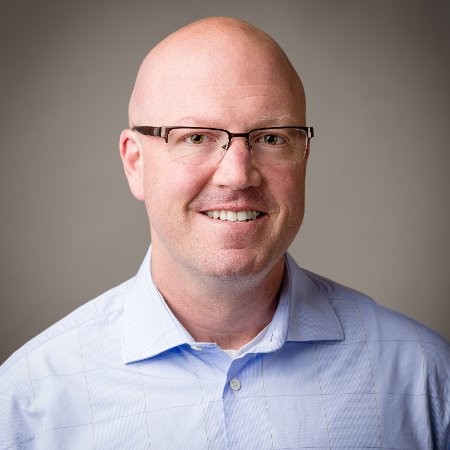In the movie World War Z, there was a Mossad agent trying to explain to Brad Pitt’s character why Israel was far more prepared for a zombie outbreak than the rest of the world. The reason was the 10th Man Rule. The agent explained that Israel’s security council had 10 advisors who looked into big picture issues. If the first 9 advisors dismissed an issue or potential danger to the country, then the 10th man was forced to overrule them on principle and look into the issue no matter how far-fetched the scenario. There’s a lesson in there that I think applies to exactly how Ed McQuiston, EVP and Chief Commercial Officer for Hyland, says the company tends to operate. In this episode of Business X factors McQuiston sets out how the company has adopted a process of contrarian thinking that has ensured its survival for decades.
Main Takeaways:
- How Not to Become a Boiled Frog: When managers realise that a business is running into a problem, it is critical not to become the metaphorical frog who doesn’t notice that the water is warming up until it’s too late. Leaders need to pivot and refocus the strategy, which includes doing a critical review of the business plan, coming up with a new route, and then getting the buy-in and resources necessary to make it work.
- Bring in a Truth Teller: As managers advance to the executive level, feedback often becomes more infrequent and more unreliable, which means that executives could plateau in their leadership and interpersonal skills. Third party coaches or consultants are particularly effective in times of change and can help executives come up with new ways to tackle old problems. When managed correctly, they can reduce exposure to operational risk.
- A Devil’s Advocate on Your Team: When one member comes up with an alternative perspective, it encourages other members to consider other angles to a problem, think more deeply about their own views, and perhaps stimulate solutions that they would not have considered before. To be an effective devil’s advocate, the Harvard Graduate School of Education suggests that ideas should be challenged, not the participants who put them forward — don’t hurt feelings and maintain focus on the group.
Key Quotes:
“In those early days, we were not a name. We weren’t a name in our own industry, let alone in the healthcare industry at that point. And the core providers of our type of solutions… they were selling something like our software, but the difference was they were selling it very narrowly in the niches… Now we were differentiating, and we had a better story, even though we weren’t as big a company.”
“Information lies at the root of how businesses run and making it available to people where they need it, when they need it for decision-making was really at the root of it and that it should be easy and not complex. It should be accessible, always on… The difference today is the volume of information and the ways in which people want to consume, it has expanded exponentially over the years, but that root belief lies in everything we do.”
“It doesn’t matter the success we’ve had; we’ve got to peel it to the studs and analyze every aspect of how we are approaching this market. We’ve got to look at how we demonstrate. We’ve got to look at our messaging, we’ve got to look at how we’re talking to customers and we’ve got to really redo our approach. And as our customers will refer to a lot… we’ve got to change planes while we’re still flying and that’s the hard part. There’s never that opportunity to just say, all right, let us pause and reset, right? It’s, ‘The business continues every day.’”
“We kept showing value again and again, and that really became a linchpin to our success where we were able to replicate that time and time again for the better part of 18 years now.”
“I don’t want to be on the access road. And I don’t want our customers to be on the access road. You know, how are we doing 80 on the highway?… I think that today, if you want to be in tech and you want to lead it, it has to be ever-present, you can’t let your foot off the gas.”
“I don’t want to talk to you about your technology. I really don’t. I want to talk to you about what keeps you up at night, you know, where are you trying to go with the business may well evolve into a technology discussion, but how do I help you if I don’t understand what is keeping you up at night.”
“If you’re … a hundred-year-old insurance company in Switzerland and you didn’t keep up, you’re now watching your financial reports, and you’re watching customers attrite year after year and there becomes a line in the sand where the amount of new premiums coming in versus what you’re trading off means we’re in big trouble… Our job wasn’t to just come in and be technologists. Our job was to figure out how to keep them from not being a business in five years.”
“I can’t figure out whether it’s subconscious or conscious, but I surround myself with people who are capable of handling my ‘Ed moments.’ And our VP of marketing looked at me. He said, ‘We could definitely do that, but instead what we could do…’ and we brought in a third party to really analyze us, benchmark us against best practices and make recommendations on ways to revamp that process.”
Bio:
Ed McQuiston is the Executive Vice President and Chief Commercial Officer at Hyland. Ed joined Hyland in 2001 as the Director of Healthcare Solutions, founding Hyland’s first vertical practice. In 2012, Ed was promoted to the role of Vice President of Global Sales. In 2016, Ed was named Senior Vice President of Global Sales & Marketing with responsibility for aligning those areas in support of Hyland’s global expansion. In 2017, Ed became Hyland’s Executive Vice President & Chief Commercial Officer. His tenure at Hyland and extensive knowledge of the Hyland platform helps support and expand Hyland’s strategic initiatives.
With more than 20 years of experience in the content services and intelligent automation industries, Ed focuses on assisting organizations looking to accelerate digital transformation initiatives as he leads Hyland’s global sales, marketing, customer success and services programs. Ed’s experience in driving vertical-specific initiatives, adapting to worldwide trends and his strong market understanding helps position Hyland as the go-to vendor for digital transformation. He serves on multiple non-profit boards in his passion areas of healthcare and education.
—
Business X factors is produced by Mission.org and brought to you by Hyland.
For over a decade, Hyland has been named a Leader in the Gartner Magic Quadrant for Content Services Platforms, leading the way to help people get the information they need when and where they need it. More than half of 2019 Fortune 100 companies rely on Hyland to help them create more meaningful connections with the people they serve. When your focus is on the people you serve, Hyland stands behind you. Hyland is your X factor for better performance. Go to Hyland.com/insights to learn more.




